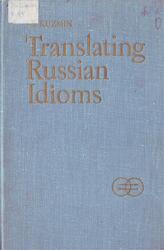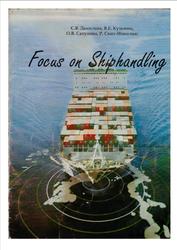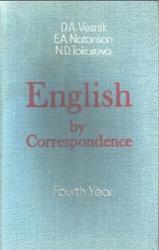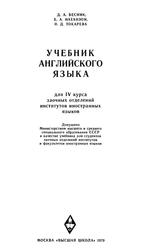Перевод русских фразеологизмов на английский язык, Кузьмин С.С., 1977.
Цель пособия — помочь студенту овладеть способами и средствами перевода русских фразеологизмов на английский язык, научить его анализировать процесс перевода в его динамике, преодолевать переводческие проблемы и профессионально разбираться в них, достигать адекватности перевода, учитывая эмоциональную окраску текста. В пособии анализируются трудные для перевода русские фразеологизмы, активизируются наиболее часто встречающиеся в печати русские фразеологизмы и их эквиваленты, предлагается система упражнений на практическое овладение переводом фразеологизмов.
Предназначено для студентов старших курсов переводческих факультетов институтов иностранных языков, а также аспирантов и переводчиков.
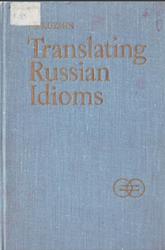
WHERE DOES TRANSLATION BEGIN?
Some say, translation is art based on knowledge. Of course, an interpreter must have a good knowledge of the idioms of the two languages as well as take decisions to the best of his (her) knowledge and taste.
Suppose one has to interpret the idiom “метать громы и молнии (в чей-л. адрес)” which is rather frequently used in the Russian press. The interpreter who wants to make his translation idiomatic has to look up a dictionary of Russian idioms to be sure of the idiom’s meaning and then to find in a dictionary of English idioms an adequate English idiom. This process seems to be ideal but our interpreter soon realizes that translation begins where dictionaries end.
The interpreter would realize that the idiom “метать громы и молнии” may mean three things in one: (1) быть в страшном гневе, (2) выкрикивать бранные слова и (3) что подобные действия — “гнев” и “крик”— дело напрасное или неразумное.
So, it seems impossible to find a single English equivalent for all contexts. At first glance, however, it appears quite possible to find several English idioms and translate the Russian idiomatically ‘by parts’, that is,
(1) “быть в страшном гневе” may be expressed by ‘to be beside oneself
with rage' or ‘to go up into the air' (i.e. explode with rage) or ‘to fly off the handle’ (which may, sometimes, correspond to the Russian “он словно с цепи сорвался”);
CONTENTS
Preface
Chapter 1
The starting mission is recognition. Translation begins where dictionaries end. Avoiding descriptive translation.
Chapter 2
Relations in pairs of statements. Translating phrases’ functions. Dot-the-i’s tendency. Synonymous statements and emphasis.
Chapter 3
Indices for interpretation: meaning and usage. Image as selected designation. Beware translating designations.
Chapter 4
Emotive-and-evaluating content of the information. Theory points in brief. Phrase and context signs’ combinations. Text unit overtones as an index for interpretation. Expressive-and-emotive and only expressive phrases. Approach to dual (only expressive) phrases. Negative exaggeration.
Chapter 5
Four undesirable connotations. The case of ‘a black sheep’, ‘a black dog’ and ‘a leopard’. Desirable or undesirable? Restoration before translation.
Chapter 6
Sarcasm: indications, conditions. Means of conveying sarcasm. Irony: manifestations, conditions. Means of proper divergency. Principle of transformation. Play on components and idiomatic background. The case of a ‘byword’, a ‘town talk’ and ‘notorious’ things.
Chapter 7
Additions: internal and external. Adverbial modifiers as additions. Phraseological level and allusions. Attributive additions: specifying and intensifying. Greater intensification. Word-combinations as additions. Utilization of abilities. Weakening and litotes. Possessive pronouns. Puns. Types and aims of innovation.
Chapter 8
Proverbs’ figurativeness and its means: rhyme, structures, phrases, colloquialisms, rhythm, transpositions, metaphorical explanation. Translating epigrams. Classification. Translating by English and translators’ equivalents. Innovation as means of adequacy. Complex utilizing. Some epigrams. Innovation: lexical and grammatical, complicated. Two-part proverbs.
Bibliography References.
Бесплатно скачать электронную книгу в удобном формате, смотреть и читать:
Скачать книгу Перевод русских фразеологизмов на английский язык, Кузьмин С.С., 1977 - fileskachat.com, быстрое и бесплатное скачивание.
Скачать djvu
Ниже можно купить эту книгу, если она есть в продаже, и похожие книги по лучшей цене со скидкой с доставкой по всей России.Купить книги
Скачать - djvu - Яндекс.Диск.
Дата публикации:
Теги: учебник по английскому языку :: английский язык :: Кузьмин
Смотрите также учебники, книги и учебные материалы:
Следующие учебники и книги:
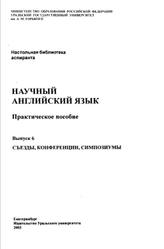 Научный английский язык, Съезды, конференции, симпозиумы, выпуск 6, Андреева Т.Я., 2003 — Проблема выхода на международную научную арену с каждым годом вызывает все больший интерес у молодых исследователей. Такой ареной являются съезды, … Книги по английскому языку
Научный английский язык, Съезды, конференции, симпозиумы, выпуск 6, Андреева Т.Я., 2003 — Проблема выхода на международную научную арену с каждым годом вызывает все больший интерес у молодых исследователей. Такой ареной являются съезды, … Книги по английскому языку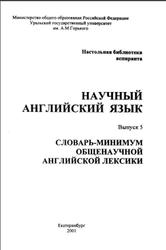 Научный английский язык, Словарь-минимум общенаучной английской лексики, выпуск 5, Андреева Т.Я., 2001 — В пятый выпуск серии Настольная библиотека аспиранта включен Словарь-минимум общенаучной английской лексики , представляющий собой набор универсальных существительных, прилагательных, глаголов, … Книги по английскому языку
Научный английский язык, Словарь-минимум общенаучной английской лексики, выпуск 5, Андреева Т.Я., 2001 — В пятый выпуск серии Настольная библиотека аспиранта включен Словарь-минимум общенаучной английской лексики , представляющий собой набор универсальных существительных, прилагательных, глаголов, … Книги по английскому языку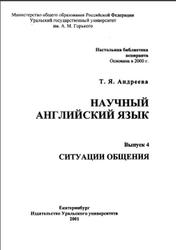 Научный английский язык, Ситуации общения, выпуск 4, Андреева Т.Я., 2001 — Одной из целей, стимулирующих студентов к активному изучению иностранного языка, служит подготовка к вступительному экзамену в аспирантуру и сдача кандидатского … Книги по английскому языку
Научный английский язык, Ситуации общения, выпуск 4, Андреева Т.Я., 2001 — Одной из целей, стимулирующих студентов к активному изучению иностранного языка, служит подготовка к вступительному экзамену в аспирантуру и сдача кандидатского … Книги по английскому языку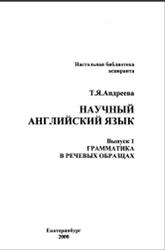 Научный английский язык, грамматика в речевых образцах, выпуск 1, Андреева Т.Я., 2000 — Пособие является первым выпуском в серии Настольная библиотека аспиранта . Каждый из выпусков законченное практическое произведение, представляющее собой освещение одного … Книги по английскому языку
Научный английский язык, грамматика в речевых образцах, выпуск 1, Андреева Т.Я., 2000 — Пособие является первым выпуском в серии Настольная библиотека аспиранта . Каждый из выпусков законченное практическое произведение, представляющее собой освещение одного … Книги по английскому языку
Предыдущие статьи:
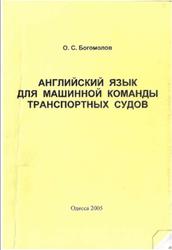 Английский язык для машинной команды транспортных судов, Богомолов О.С., 2003 — Настоящее учебное пособие предназначено для учащихся морских учебных заведений всех уровней аккредитации, осваивающих различные профессии, связанные с эксплуатацией судовых энергетических … Книги по английскому языку
Английский язык для машинной команды транспортных судов, Богомолов О.С., 2003 — Настоящее учебное пособие предназначено для учащихся морских учебных заведений всех уровней аккредитации, осваивающих различные профессии, связанные с эксплуатацией судовых энергетических … Книги по английскому языку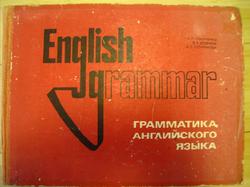 Грамматика английского языка в таблицах, Соколенко А.П., Дудкина В.В., Татаринова А.С., 1975 — В пособии представлены элементы морфологии, словообразования и синтаксиса. Композиционная структура пособия удобна в практическом пользовании: справа таблица на определенное грамматическое … Книги по английскому языку
Грамматика английского языка в таблицах, Соколенко А.П., Дудкина В.В., Татаринова А.С., 1975 — В пособии представлены элементы морфологии, словообразования и синтаксиса. Композиционная структура пособия удобна в практическом пользовании: справа таблица на определенное грамматическое … Книги по английскому языку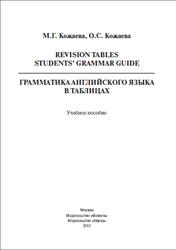 Revision Tables Student’s Grammar Guide, грамматика английского языка в таблицах, Кожаева М.Г., Кожаева О.С., 2010 — Пособие содержит необходимые сведения по основным разделам грамматики английского языка, которые изложены в удобной и доступной форме. Оно построено по … Книги по английскому языку
Revision Tables Student’s Grammar Guide, грамматика английского языка в таблицах, Кожаева М.Г., Кожаева О.С., 2010 — Пособие содержит необходимые сведения по основным разделам грамматики английского языка, которые изложены в удобной и доступной форме. Оно построено по … Книги по английскому языку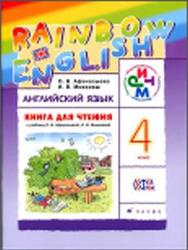 Английский язык, 4 класс, Книга для чтения, Афанасьева О.В., Михеева И.В., 2016 — Книга для чтения является составной частью УМК по английскому языку для 4 класса авторов О. В. Афанасьевой, И. В. Михеевой … Книги по английскому языку
Английский язык, 4 класс, Книга для чтения, Афанасьева О.В., Михеева И.В., 2016 — Книга для чтения является составной частью УМК по английскому языку для 4 класса авторов О. В. Афанасьевой, И. В. Михеевой … Книги по английскому языку

